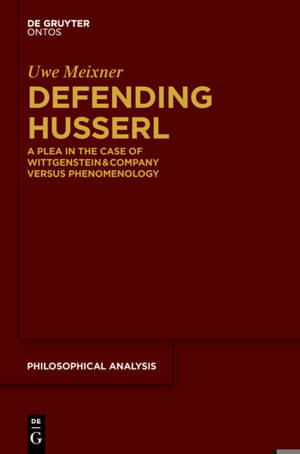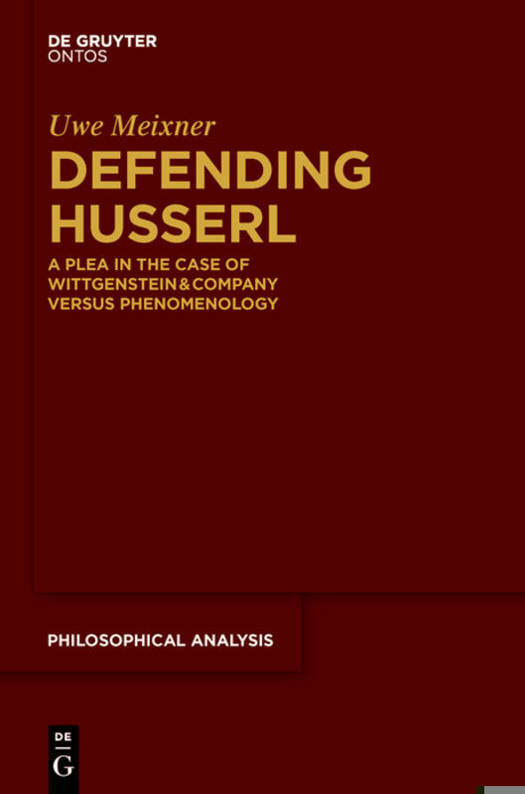
Door een staking bij bpost kan je online bestelling op dit moment iets langer onderweg zijn dan voorzien. Dringend iets nodig? Onze winkels ontvangen jou met open armen!
- Afhalen na 1 uur in een winkel met voorraad
- Gratis thuislevering in België vanaf € 30
- Ruim aanbod met 7 miljoen producten
Door een staking bij bpost kan je online bestelling op dit moment iets langer onderweg zijn dan voorzien. Dringend iets nodig? Onze winkels ontvangen jou met open armen!
- Afhalen na 1 uur in een winkel met voorraad
- Gratis thuislevering in België vanaf € 30
- Ruim aanbod met 7 miljoen producten
Zoeken
€ 172,45
+ 344 punten
Omschrijving
The phenomenological approach to the philosophy of mind, as inaugurated by Brentano and worked out in a very sophisticated way by Husserl, has been severely criticized by philosophers within the Wittgensteinian tradition and, implicitly, by Wittgenstein himself. Their criticism is, in the epistemological regard, directed against introspectionism, and in the ontological regard, against an internalist and qualia-friendly, non-functionalist (or: broadly dualistic/idealistic) conception of the mind. The book examines this criticism in detail, looking at the writings of Wittgenstein, Ryle, Hacker, Dennett, and other authors, reconstructing their arguments, and pointing out where they fall short of their aim. In defending Husserl against his Wittgensteinian critics, the book also offers a comprehensive fresh view of phenomenology as a philosophy of mind. In particular, Husserl's non-representationalist theory of intentionality is carefully described in its various aspects and elucidated also with respect to its development, taking into account writings from various periods of Husserl's career. Last but not least, the book shows Wittgensteinianism to be one of the effective roots of the present-day hegemony of physicalism.
Specificaties
Betrokkenen
- Auteur(s):
- Uitgeverij:
Inhoud
- Aantal bladzijden:
- 529
- Taal:
- Engels
- Reeks:
- Reeksnummer:
- nr. 52
Eigenschappen
- Productcode (EAN):
- 9783110342314
- Verschijningsdatum:
- 20/01/2014
- Uitvoering:
- Hardcover
- Formaat:
- Genaaid
- Afmetingen:
- 163 mm x 236 mm
- Gewicht:
- 879 g

Alleen bij Standaard Boekhandel
+ 344 punten op je klantenkaart van Standaard Boekhandel
Beoordelingen
We publiceren alleen reviews die voldoen aan de voorwaarden voor reviews. Bekijk onze voorwaarden voor reviews.











